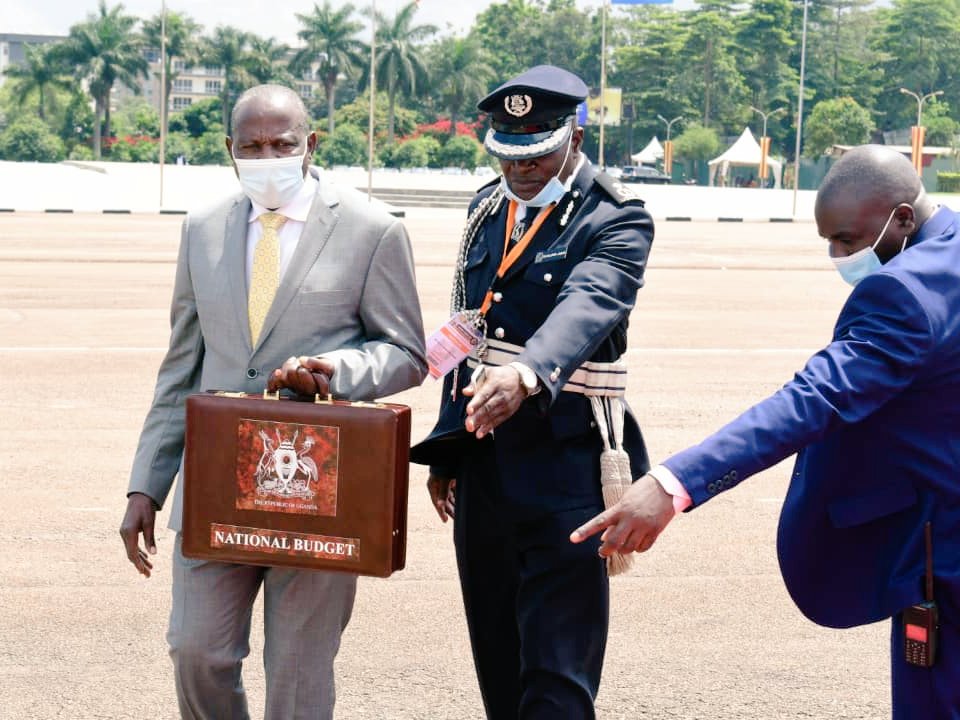The Other Side of the Coin
It’s easier for Uganda to borrow than control wasteful expenditure

Finance Minister Matia Kasaija presented the 2022/2023 budget in which he plans to raise less than 50 percent of his budget in taxes
A new budget has been passed and read. For starters, the national budget is the single most important policy vehicle for giving effect to a country’s economic and social priorities using the scarce resources available for government to spend. It is still through this budget that competing policy objectives are reconciled and implemented.
Whereas budget reading is a one day thing, government spends the rest of the fiscal year mobilizing revenue and directing this revenue to the budgeted expenditure priorities. Most Ugandans, however, stop at the budget speech during which vast majority of them simply dose off. You will discover that reading a national budget is like urinating on yourself in public; people can see your pants getting wet but you are the only one feeling the warmth of the urine.
The budget should be a financial mirror of society’s economic and social choices. In order to perform the roles assigned to it by its people, the state needs, among other things, to collect resources from the economy in a sufficient and appropriate manner and also to allocate and use those resources responsively, efficiently and effectively.
We may now need to ask ourselves; how effective and efficient is government in executing these duties? Are the spending priorities realistic? Is it a citizen-friendly budget in terms of taxes and service delivery? How long are we planning to keep financing our budgets largely from external funding and borrowing from poor Ugandans? What are the likely implications of our exorbitant and untamable expenditure?
Let’s look at the Bank of Uganda Annual report 2019 just a couple of years ago. This report indicated that the budget deficit or (the part that is excess of projected revenue), increased from UGX4,902.3 billion in June 2018 to UGX6,401 billion in June 2019. On the other hand, the debt increased from UGX42,435 billion in June 2018 to UGX47,305.2 billion in June 2019. This only suggested that the budget deficit was going to increase further. The fact that we are always ready and comfortable spending more than what we are able to collect as revenue should worry us because this means that we cannot do without borrowing. And to make matters worse, a significant percentage of our expenditure is not even capital expenditure but recurrent expenditure that will surface year in and you out.
As a convention, the government would entirely wish to rely on domestically generated revenues from taxes. But when expenditure goes out of hand, public borrowing is at times sought to bridge the resource gap between tax revenues and expenditures. Unfortunately this has trapped many emerging economies into debt syndrome as countries seek funding from international lenders through loans, grants and donations and domestically through issuance of treasury bills and loans among other modes. The good news is that these endeavours increase resource availability to spend but the bad news is that we shall have entered into a contractual liability and we have to pay in most cases with interest.
If we closely look at the effect of public debt on the economy of a country, we may wonder why government chooses to borrow instead of living within its means. Surely no theoretical convergence on the respective nexus has been attained. In Uganda the public debt question remains critical in the country’s development trajectory. Uganda was the first country, under the highly indebted poor countries, to receive a debt relief of worth US$650 million in the 1990s and later in 2006, under the Multilateral Debt Relief Initiative (MDRI), the country generously received 100% debt forgiveness/cancelation which consequently reduced the stock of country’s debt to $1.6 billion.
However, of recent, the debt stock has kept on rising from UGX14.257 trillion ($5.5 billion) in 2000 to UGX35.3 trillion (9.8b) in July 2017.
The most recent figures put Uganda’s total debt stock at a worrying US$19.5bn (UGX73.8 trillion) Simply put, every Ugandan, young and old, has a debt of UGX1.53m over his or her head.
Since then debt stock has continued increasing in the short to medium term due to the robust national development projects and priorities which are set to attract more borrowing.
As a country our biggest problem is the fiscal indiscipline of government. World over, governments typically use fiscal policy to promote strong and sustainable growth, reduce poverty and attain the key goals of economic policy, that’s growth, equity and stability.
The 2022/ 2023 budget alongside other objectives is supposed to support financial systems, jump-start growth, and mitigate the impact of the crisis on vulnerable groups. But there is something more that government has to keenly look at. Until we tame our appetite for exorbitant and wasteful expenditure, curb the corruption malady that siphons our limited resources, direct the biggest fraction of our resource envelope to capital expenditure, control borrowing and cushion the population against chocking taxes, our budgets may never be meaningful.
Comments






















